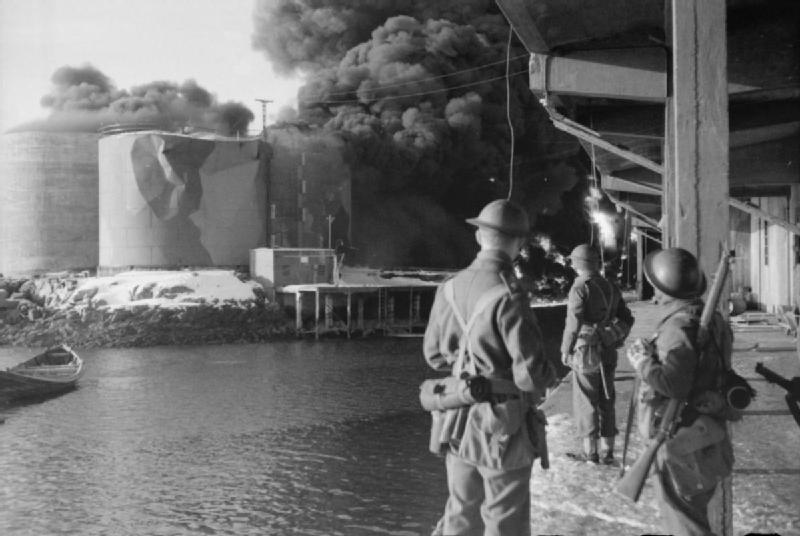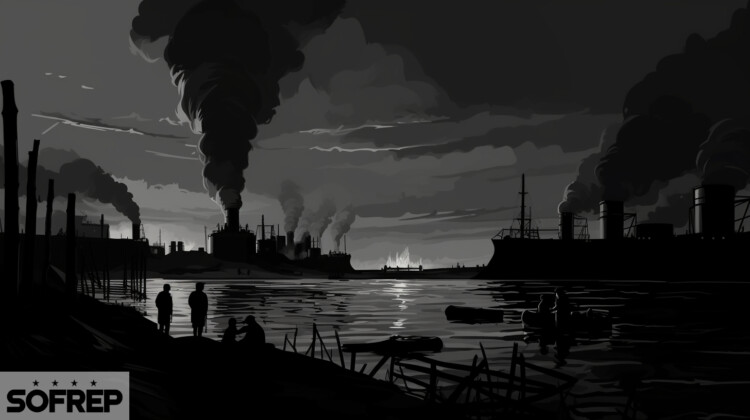After the ignominious retreat of Great Britain from continental Europe, a strategic realignment was imperative. The ambitious offensive capabilities aimed at Germany had to find an alternative theater of action. Thus, following the triumphant defense in the Battle of Britain, the island nation shifted its focus to the scorching deserts of North Africa. This transition not only reshaped the trajectory of the war but also demonstrated the remarkable resilience of the British spirit.
The North African Crucible: Triumph Amidst Desolation
The North African theater became the crucible of British resolve. The Battle of Britain had imbued the nation with a renewed sense of purpose, leading to a shift in their tactical approach. While the evacuation from Dunkirk in 1940 had been a devastating blow, it provided a bitter lesson that played a role in shifting offensive efforts elsewhere. This transition found its fruition in the North African desert campaign.
The battles that unfolded in the arid expanses of North Africa were more than just strategic confrontations; they were a testament to the indomitable spirit of the British people. The backdrop of shifting dunes became a canvas on which the British military, in tandem with their American allies, painted a picture of resilience, resourcefulness, and relentless determination. Between 1941 and 1942, the momentum shifted, and the Germans experienced their first significant ground defeat.
From Defeat to Vengeance: Yearning for a European Offensive
While North Africa offered a glimmer of hope, the British yearned for a renewed offensive capability in Europe. The withdrawal from Europe in 1940 left an indelible scar that decayed into a desire for retribution. The British establishment recognized the need for a more impactful approach to shake the enemy and the world. Collaborations with resistance forces, espionage, and covert operations were effective, but they lacked the visceral impact that an audacious operation could achieve.
Commandos: Forging a New Path of Audacity
Enter the Commandos, a special force equipped with exceptional skills and unparalleled courage. Carrying with them the much-needed audacity, this elite unit became the instrument of Britain’s desire to storm back into the European theater. A plan was conceived, and its codename was befittingly enigmatic: Operation Claymore. This operation, set to unfold in the inhospitable reaches of the Arctic Circle, was destined to become a defining moment in the annals of World War II.

Arctic Ambush: The Birth of Operation Claymore
The target of Operation Claymore was the Lofoten Islands, a cluster of windswept outcrops off the Norwegian coast. Though seemingly insignificant, these islands held the key to a crucial ingredient for explosives manufacturing – fish oil. As you may not know, fish oil was used and refined into glycerin, a vital component in creating high explosives. The operation’s objective was clear: capture the islands, destroy facilities and ships, and convey a resounding message to Nazi-occupied Europe.
Precision and Preparedness: Forging the Commando Force
Preparation for Operation Claymore was meticulous. A force of 500 Commandos, comprising Commando Groups 3 and 4 under the leadership of Major J.F. Durnford-Slater and Lieutenant Colonel D.S. Lister, respectively, embarked on this audacious endeavor. Supported by Royal Engineers and the Royal Norwegian Navy, the Commandos were under the command of Rear Admiral L.H.K Hamilton. Transported by landing ships and escorted by destroyers, the Commandos were primed for a daring assault.
Dawn of Audacity: Operation Claymore Unleashed
The execution of Operation Claymore was a symphony of precision and audacity. The Commandos, honed by rigorous training and exercises, navigated turbulent seas and hostile skies. Despite a sighting by a German reconnaissance plane, their determination remained unshaken. On March 4, 1941, as the dawn hues painted the horizon, the Commandos descended upon the Lofoten Islands. Their assault was swift and unexpected, catching the German garrisons off guard. The harbors were secured, and the facilities were systematically destroyed.
Impact Beyond Destruction: Legacy of Operation Claymore
The impact of Operation Claymore was profound. The success of the operation far surpassed expectations. The German garrisons crumbled with minimal resistance, surrendering to the overwhelming might and audacity of the Commandos. The destruction wrought upon the facilities, docks, and ships was colossal, disrupting Nazi operations significantly. Beyond the collapse, a surprising bounty emerged – components of the German Enigma coding machine, a find that would bolster British intelligence efforts.
Liberators, not Conquerors: Forging Bonds with the Locals
In the aftermath of the operation, the Commandos interacted with the local population, solidifying their place as liberators rather than conquerors. The locals, initially skeptical, embraced the Commandos as allies against the Nazi oppressors. Collaborators were apprehended, prisoners were taken, and a sense of liberation pervaded the air.
Conclusion: Operation Claymore – Symbol of British Resilience
Operation Claymore underscored the triumph of meticulous planning and audacious execution. Against all odds, the Commandos achieved their objectives with minimal casualties, leaving an indelible mark on the landscape and the annals of history. As the ships turned for home, the conflagration of burning oil, shattered factories, and sinking ships was a testament to British resolve.
In conclusion, Operation Claymore stands as a microcosm of British determination during World War II. The operation exemplified the audacity and ingenuity of the British military, reminding the world that even in the darkest times, the spirit of liberty burns bright. Operation Claymore was not merely a raid but a reaffirmation of British resilience, a resounding declaration that no matter the odds, the British people would rise to the occasion and shape their destiny.










COMMENTS